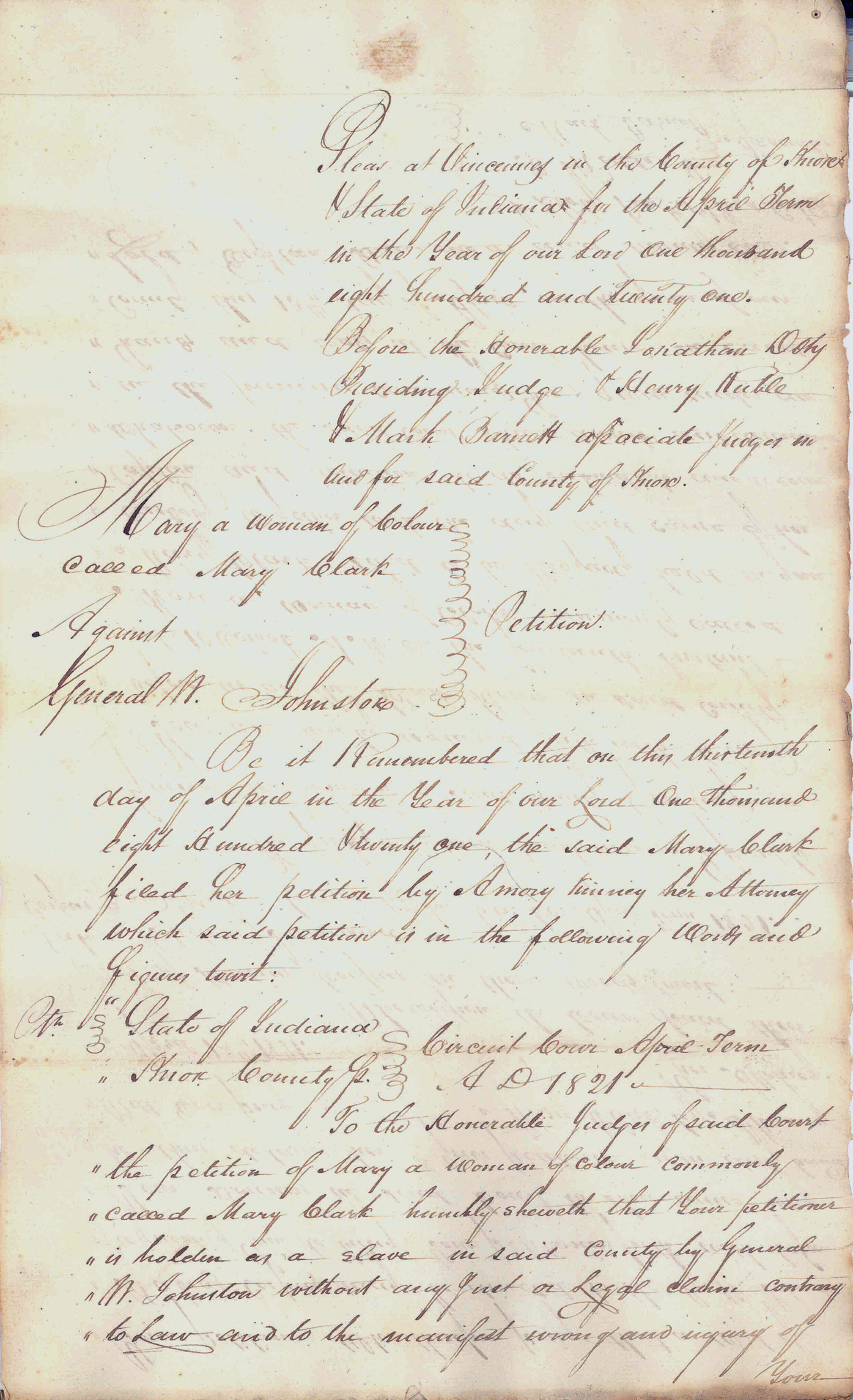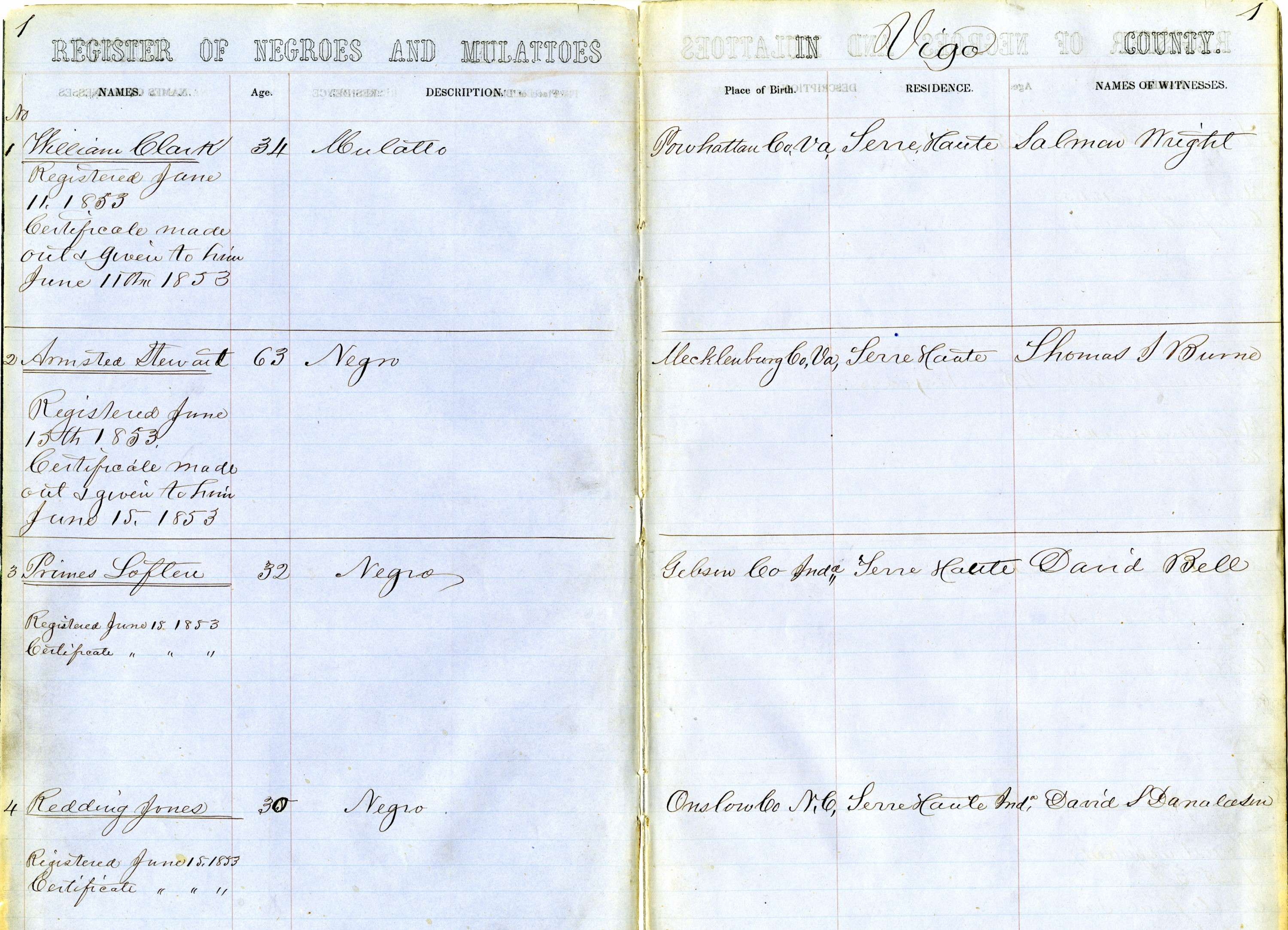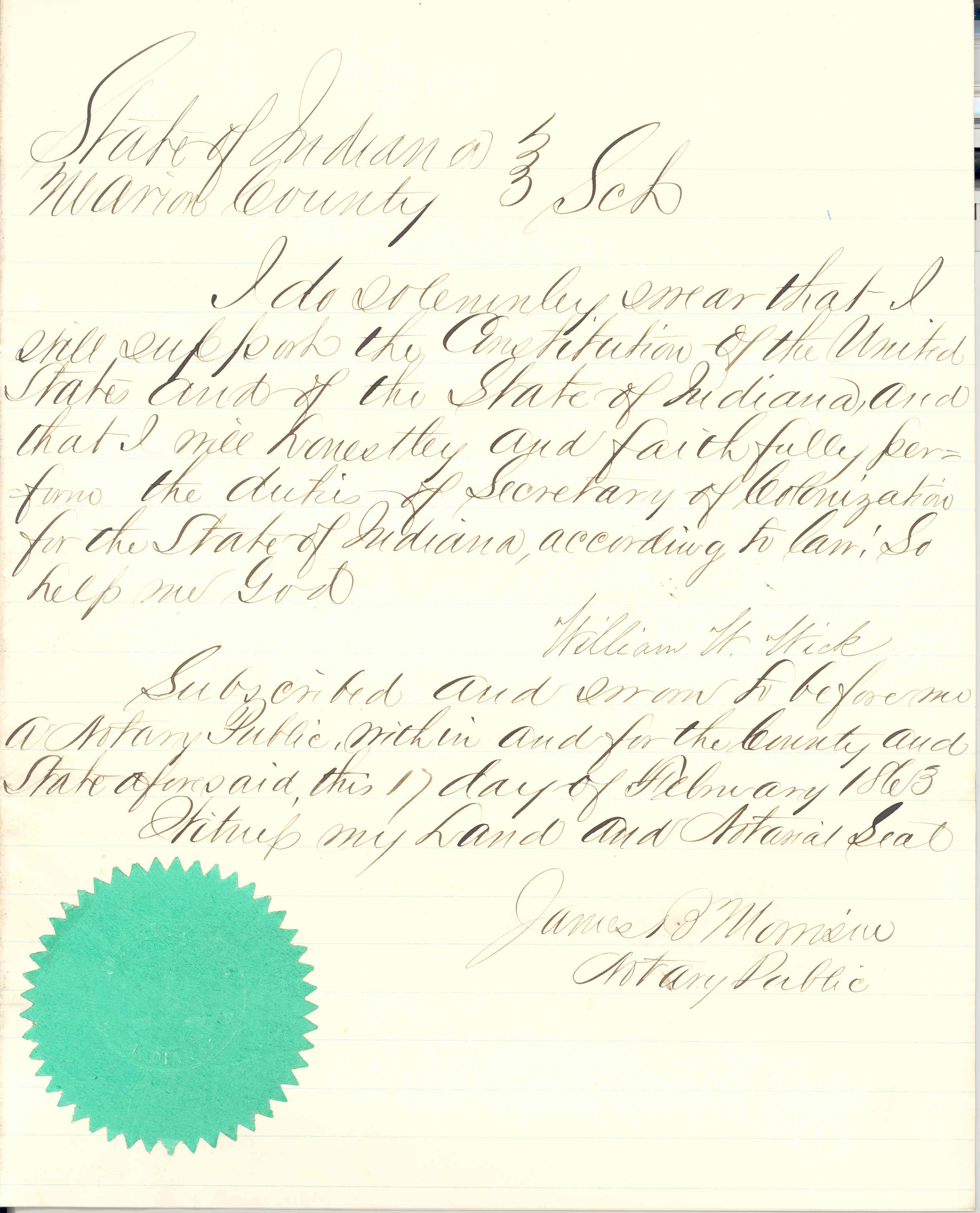Antebellum Black History Records
Clark County Slave Register
While slavery was prohibited in the Indiana Constitution and the enabling acts for the Northwest and Indiana Territories, many enslavers brought enslaved people into the territory and attempted to retain control of them by coercing them into indenture agreements. This is evidenced in the earliest record regarding slavery in the State Archives collection; the 1805-1810 Clark County Register of Negro Slaves (Acc# 2004381). This register is a comprehensive but incomplete accounting of all the enslaved people in the County at the time, which included portions of several modern counties in the southeastern part of the State. The Clark County Register has been digitized and is available on Indiana Memory.
 Fugitive Slave Cases in County and State Courts
Fugitive Slave Cases in County and State Courts
Despite Indiana's mixed attitudes towards slavery and African Americans in general, the State and its citizens maintained a largely antagonistic relationship with hunters of escaped slaves. There are several cases in early County Court records regarding alleged fugitive slaves and their attempted removal from the State by slave hunters. Notable among these are the case of William Trail from Switzerland/Franklin County (B100204985S), and the 1853 case of Freeman v. Robinson from both the Marion County Court (Acc# 2007236 B118 F12) and Indiana Supreme Court (B100218505S).
Landmark Indiana Supreme Court Cases
Although slavery was prohibited in Indiana, it was an open question whether slaves that moved into the State were considered free by virtue of their residence. This question was answered by State v. Lasselle (B100205607Q) in 1820. Originating in Harrison County, the case involved prominent local citizen Hyacinthe Lassalle and an enslaved woman known as Polly. It was orchestrated by abolitionists as a test case for existing enslaved persons in the State. Polly had been purchased before the Northwest Territory was organized; therefore, her victory would indicate that all the existing slavery in the State was considered illegal and void.
While Lasselle v. State ended all explicit slavery in Indiana, many early slave owners had arranged for their enslaving to continue under the guise of indentured servitude, coercing their slaves to sign lopsided legal agreements that kept them in de facto if not de jure slavery. These arrangements were struck down by the 1821 Clark v. Johnston case (B100218505S), originating in Knox County.
1851 Negro Registration Books
Although Indiana's courts occasionally a acted as allies to enslaved people and abolitionists, the State's legislature was generally less benevolent. After an 1831 act that required "free negroes and mulattoes" to submit a bond ensuring their productivity and good behavior to their county of residence, the 1851 Constitution went one step further by prohibiting any immigration to the State by such peoples. As a result of this prohibition, all existing African American residents of the State were required to register with their county, creating the Registers of Negroes and Mulattoes. The Archives holds the original registers for 7 counties: Clark, Franklin, Ohio, Orange, Switzerland, Tippecanoe, and Vigo. They have been indexed for the Research Indiana Index and digitized for inclusion in Indiana Memory.
acted as allies to enslaved people and abolitionists, the State's legislature was generally less benevolent. After an 1831 act that required "free negroes and mulattoes" to submit a bond ensuring their productivity and good behavior to their county of residence, the 1851 Constitution went one step further by prohibiting any immigration to the State by such peoples. As a result of this prohibition, all existing African American residents of the State were required to register with their county, creating the Registers of Negroes and Mulattoes. The Archives holds the original registers for 7 counties: Clark, Franklin, Ohio, Orange, Switzerland, Tippecanoe, and Vigo. They have been indexed for the Research Indiana Index and digitized for inclusion in Indiana Memory.
Five other registers are known to have survived. The Registers for Gibson, Jackson, Jennings, and Posey are available on FamilySearch.org.
The Knox County Register, held by the Knox County Public Library, is also available on Indiana Memory.
 The Board of Colonization
The Board of Colonization
The fines and forfeited bonds from the 1831 act were intended to go to the State's Board of Colonization. In contemporary context, the Colonization Movement was an effort to return free African Americans to Africa, particularly Liberia. It had a mixed reception from all interested parties: black, abolitionist, and white supremacist, but was generally accepted, if not popular, in the antebellum period.
The State Archives collection includes the proceedings and financial records for the State Board of Colonization (Acc# 1988021 and 1984091), as well as a list of residents of Indiana sent to Liberia (Acc# 1988022). These have been digitized and are available on Indiana Memory. The Archives collection also number of records from Governor Joseph Wright (1849-1857), an ardent supporter of the movement.
